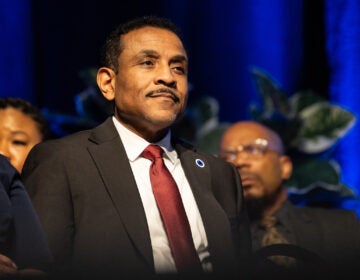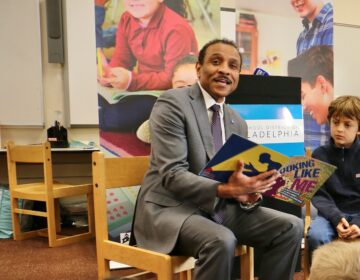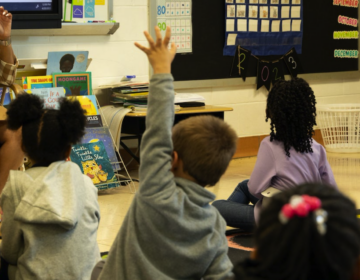5 things to know before Philly students head back to school Monday
Philly Superintendent Tony Watlington discussed the latest on year-round schools, early dismissals, A/C, teacher and staff updates, school safety plans and curriculum changes.
From Philly and the Pa. suburbs to South Jersey and Delaware, what would you like WHYY News to cover? Let us know!
It seems like the summer has just started, but we are only one week away from the beginning of the new year school year. The first day of school for students at the School District of Philadelphia will begin Aug. 26, 2024.
During the summer months, the district announced a new year-round school pilot, the addition of adequate cooling in some old school buildings, addressed staff shortages and fielded questions about crime and academic curriculum changes.
We asked the School District of Philadelphia Superintendent Tony Watlington to share the latest on the five things you need to know before school starts.
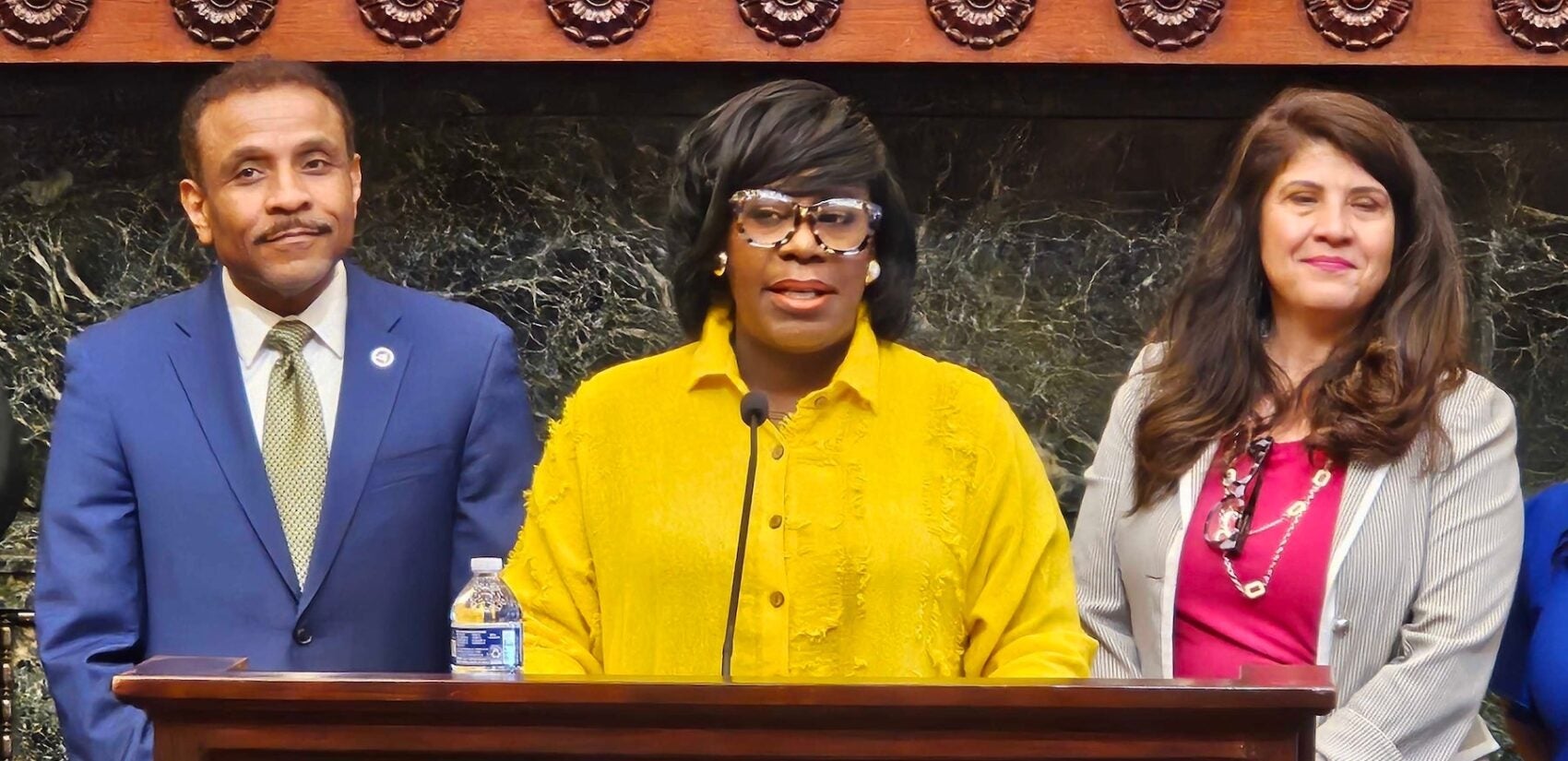
1. Will more schools become year-round schools?
It may have seemed like just a thought last year when Superintendent Watlington floated the idea of making schools in the district year-round. Then-mayoral candidate Cherelle Parker chimed in and shared the benefits the concept would provide to both students and the community during her campaign. Now, year-round schools have become a reality. In June, Watlington joined Mayor Parker to announce that the school district would test 25 schools, but said they will not be called year-round schools, per se.
The district and mayor refer to the program as an “extended day, extended year” program, which may have confused some parents.
“Whatever you call it, extended day/extended year, what we are trying to do in these 20 district-operated school pilots, similarly in five charter pilots, we are trying to provide our students with care and enrichment learning opportunities from 7 a.m. to 6:30 p.m.,” said Watlington.
The pilot is for students in grades K-8 and will begin this fall. There won’t be any changes to the academic calendar, and it’s not mandatory. Parents will have the option to allow their kids to go to school early, stay late, and continue during the winter, spring, fall and possibly summer breaks.
The district will offer optional “specialized enrichment” and promises it will not be class as usual. Watlington said they must get the teachers, unions, and more on board before they make any promises that the program will become permanent or spread to other schools.
“We are not making changes to the teacher contract or principal contract this year. That’s something we’ll work on this year in partnership with the Union Presidents for PFT (Philadelphia Federation of Teachers) and CASA (Court Appointed Special Advocates) and other Union presidents, more to come on that,” Watlington said.
He also said it’s a chance to offer additional safe space for kids before and after school as well as help keep kids safe and off the streets. “Kids who are in school with caring adults are safer. They have the opportunity to avoid conflict and trouble. They have the opportunity to learn more, both inside of the classroom and outside of the classroom, and when we get good at this down the road it can be a strategy that can help us to accelerate academic achievement,” said Watlington.
As of now there are no guarantees the program will become permanent or continue to other schools.
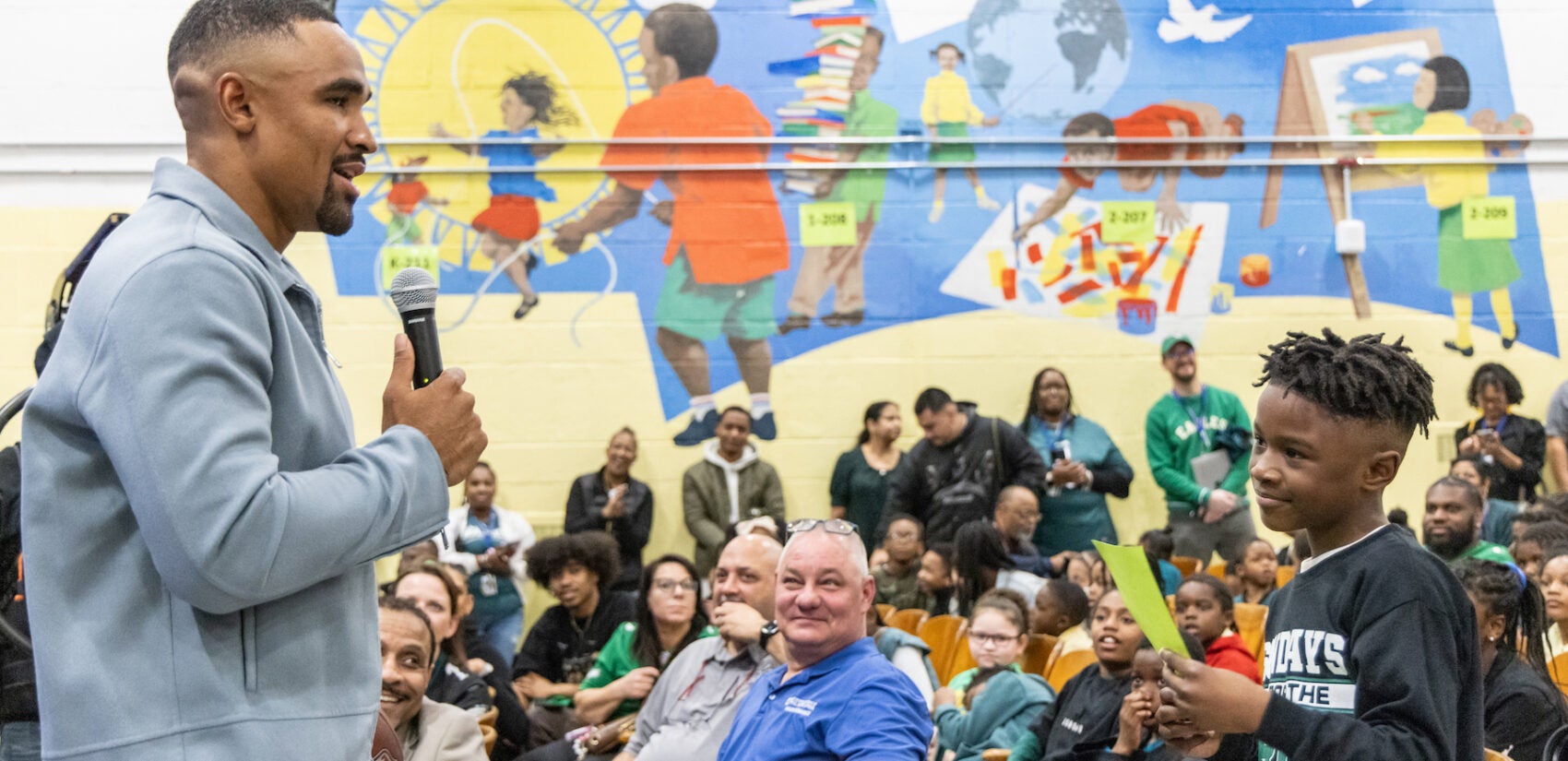
2. Which schools still don’t have air conditioning?
Last school year got off to a rough start. Tens of thousands of students were forced to return home early after they arrived to classes that did not have adequate cooling in 74 schools.
The School District of Philadelphia was scrutinized as to whether the district properly planned for the unexpected hot temperatures that soared into the 90s and how they notified parents of the three-hour early dismissals.
Now, just weeks before the start of the new school year the district took reporters to see the A/C units installed at Gloria Casarez school. Casarez is one of 10 schools that received A/C units donated by Eagles Quarterback Jalen Hurts, whose foundation donated $200,000 to purchase the units for the district.
The remaining seven schools have received A/C units, but Castor Gardens Middle School and Roosevelt Elementary school installations won’t be completed until early September.
Sixty-three district school buildings still lack sufficient air conditioning out of the more than 200 district schools. The average age of buildings is 75 years, and their electrical systems can’t support central air in most cases. Dozens of schools are still without adequate cooling as the new year begins, and parents have told WHYY they will give guardians at least a day’s notice if temperatures soar and students have to leave class early.
“We track the forecast; we track the work from emergency management staff, and our intention is always to try to give no less than 24-hour notice for working families because they need to know they have to make provisions for their children. We will be very focused on making sure that we identify and notify parents as early as possible, no less than 24 hours in,” said Watlington.
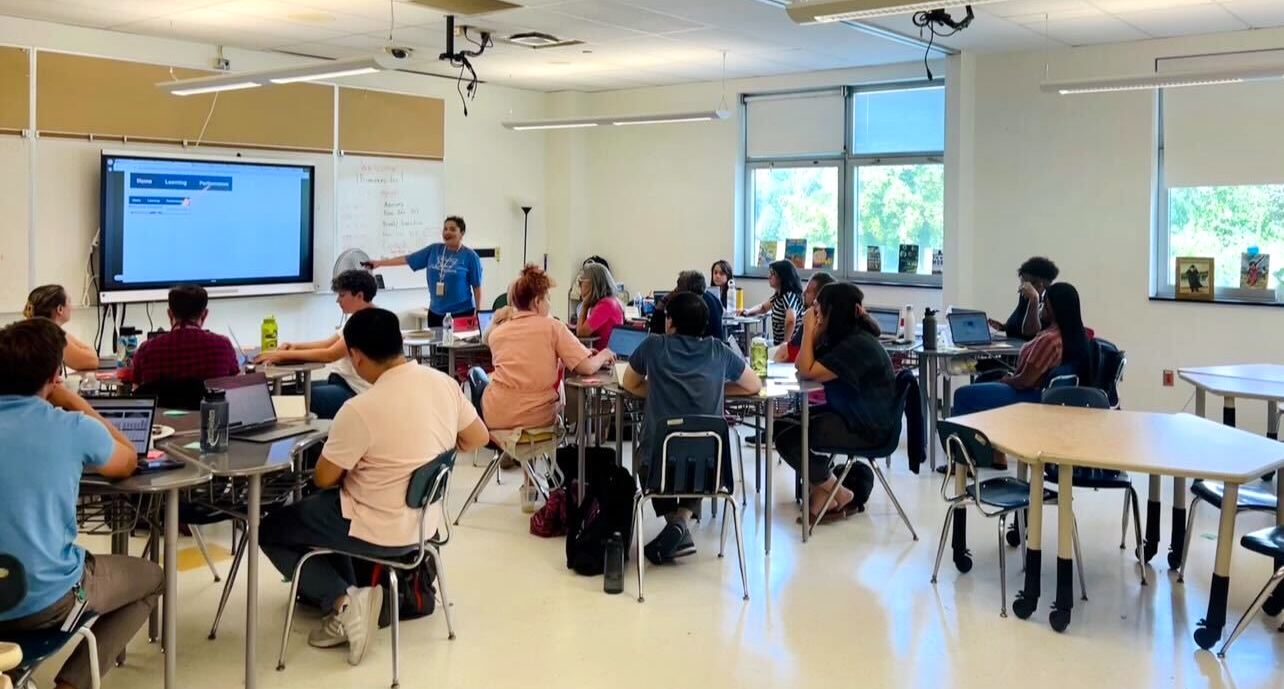
3. The district reports teacher/transportation staff are ready for the new year
The School District of Philadelphia wrapped up a new-hire orientation for 800 teachers and counselors on Tuesday. The District reports they are 95% staffed, which is on track with where they were this time last year. According to a Pew research report released this spring, there is a nationwide shortage of teachers and staff.
As of October 2023, school districts across Pennsylvania reported 2,000 teacher vacancies and another 6,500 employees teaching on emergency certificates.
Watlington said the district provided new teachers with the tools they needed to succeed in class but also hoped to maintain the number of existing teachers and staff.
“We are going to focus on accelerating academic achievement and put our foot on the gas. This year, we are going to continue to invest in our teachers so that they are prepared to meet the demands in the classroom,” Watlington said.
For families who rely on school transportation, Watlington said they have also hired more bus chauffeurs and drivers to ensure that students who utilize those resources make it to class. “In fact, I think right now we have 248 bus attendants ready to roll on August the 26th up from 239 working last year at this time,” said Watlington.
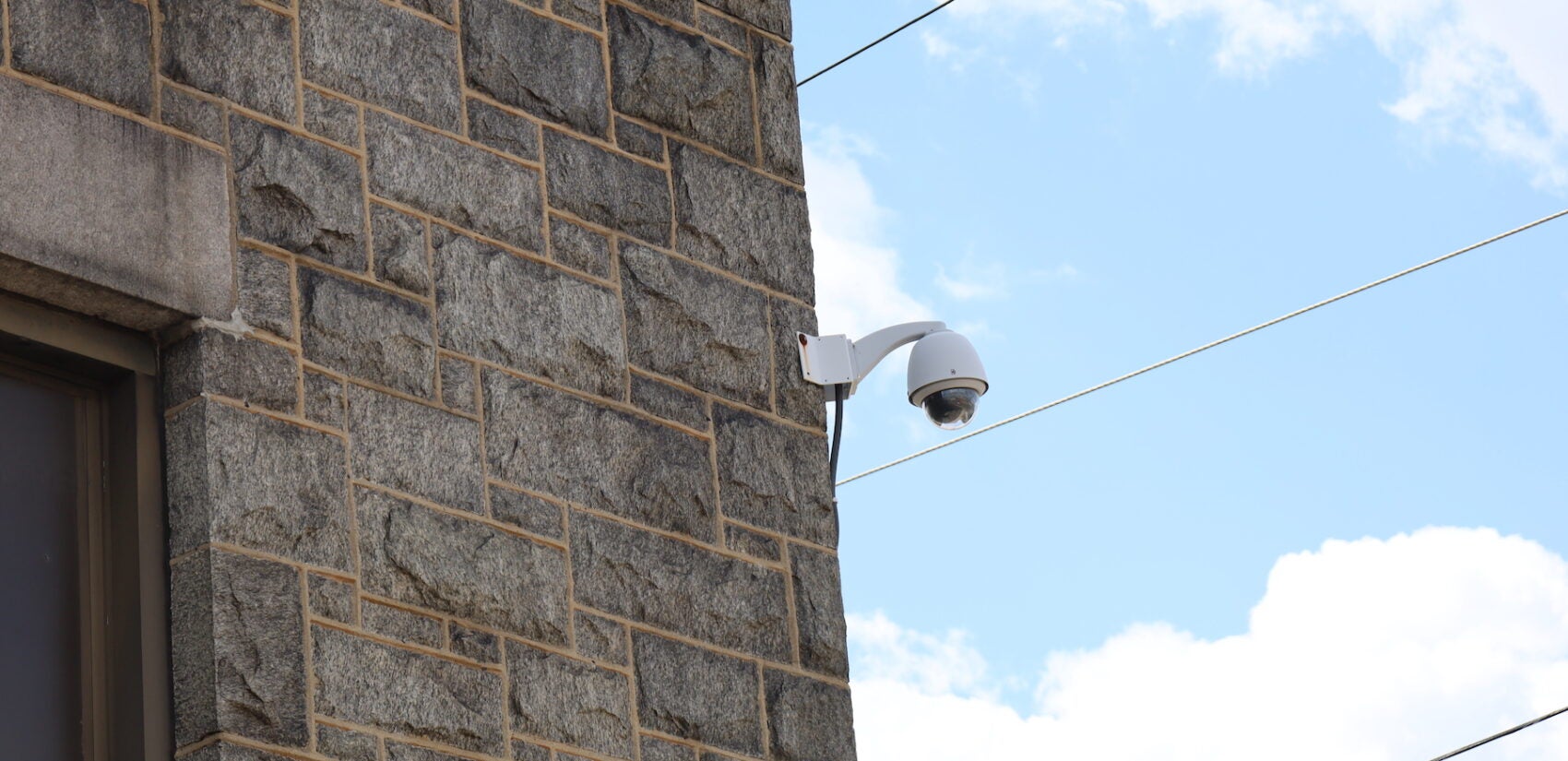
4. How will the schools prevent crime and keep students safe?
When it comes to school safety in Philadelphia, the School District of Philadelphia reported that 199 of their students were shot in the 2022-2023 school year, and 33 of those shootings were fatal. Since the start of the March 2023-2024 school year, 70 students have been victims of gun violence, and seven have died.
“I’m going to say that school safety is our number one top priority,” said Watlington, who has plans to help prevent more incidents this year. “We have to always remember schools are [supposed to be] the safest places.”
Watlington said they have increased the number of Safe Paths programs to 25 to ensure individuals and groups like IDAAY are paid to watch over children and ensure they get home safely after school.
The district will also continue investing in safety zones and installing 150 cameras to replace analog cameras across the district.
Watlington said they will also continue to invest in social and emotional health-related programs like Kooth, an online multi-platform tool that offers their students free mental health resources.
He hopes it will help students feel comfortable opening up when something does happen to or around them. “We’re encouraging our young people to build relationships with some of the programming that we are doing in school with teachers, and guidance counselors and other staff so we build relationships when kids see something, they’re more likely to say something,” Watlington said.
5. Changes to academic curriculum and how the district deals with families
Better communication and customer service are a priority for the district. Watlington said too many parents may have felt like the district wasn’t listening to their concerns so they plan to provide better customer service at schools through a “Let’s Talk” two-way communication system previously used at the district. The system tracks every time they receive an email, letter or phone call and allows them to measure how long it takes to resolve the parents’ issues or reason for contacting the office. It also provides an opportunity for them to rank the district’s performance and customer service when handling the contact.
They also plan to relaunch Parent and Family University in early 2025, allowing parents and students to meet directly with supervisors/assistant superintendents from the district who will be placed near schools at 15 area locations across the district.
“We are going to do a better job of partnering with our parents,” said Watlington, who noted the district will also pop up at barbershops, salons and community centers to meet with parents to hear their concerns and needs.
“They don’t have to come to the central office but will have a neighborhood resource person available,” said Watlington about the program set to launch in early 2025. The program was cut under the last superintendent.
They also plan to make changes to the curriculum to make it more streamlined. Teachers will use the Science of Reading, an evidence-based approach to how the brain learns to read. A streamlined English curriculum will also now be used for all students across the district. Currently, schools offer variations of the English curriculum, which Watlington hopes will increase and elevate learning.
But Watlington said none of this would be possible without the support of legislators.
“Because of the leadership of Governor Shapiro and other legislators in Harrisburg to include Senator Vincent Hughes, Speaker Joanna McClinton, Chairman Jordan Harris and delegation leader Morgan Cephas and others, this district will get another $230 million this school year,” said Watlington who also credited Mayor Parker’s city tax increase, as a step in the right direction for students across Philly.
“And because of the leadership of Mayor Cheryl Parker, who increased tax by 1% the share of the homeowner taxes that comes to the school district, that’s going to give us an additional $24 million over five years. They’ve given us some resources. We are going to be committed to providing a good return on investment for every penny that the city and the state send to the school district,” Watlington said.
WHYY is your source for fact-based, in-depth journalism and information. As a nonprofit organization, we rely on financial support from readers like you. Please give today.



